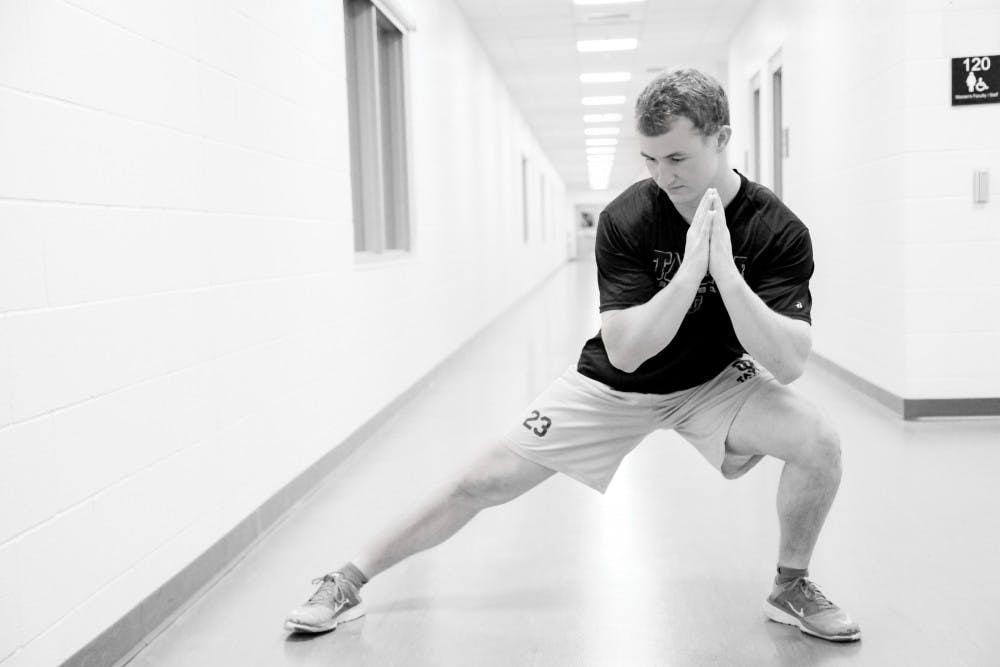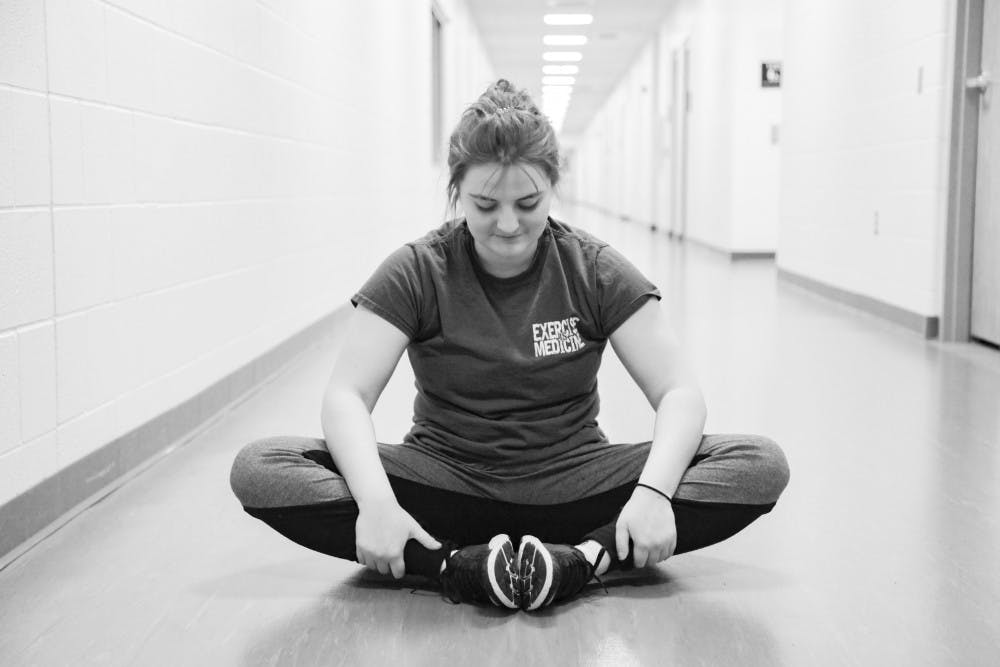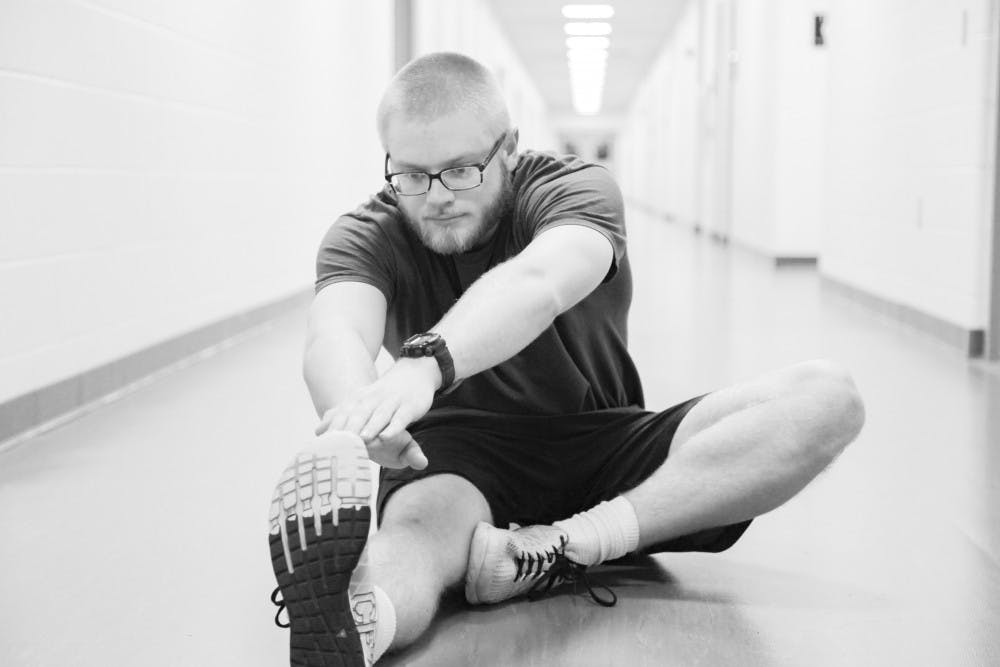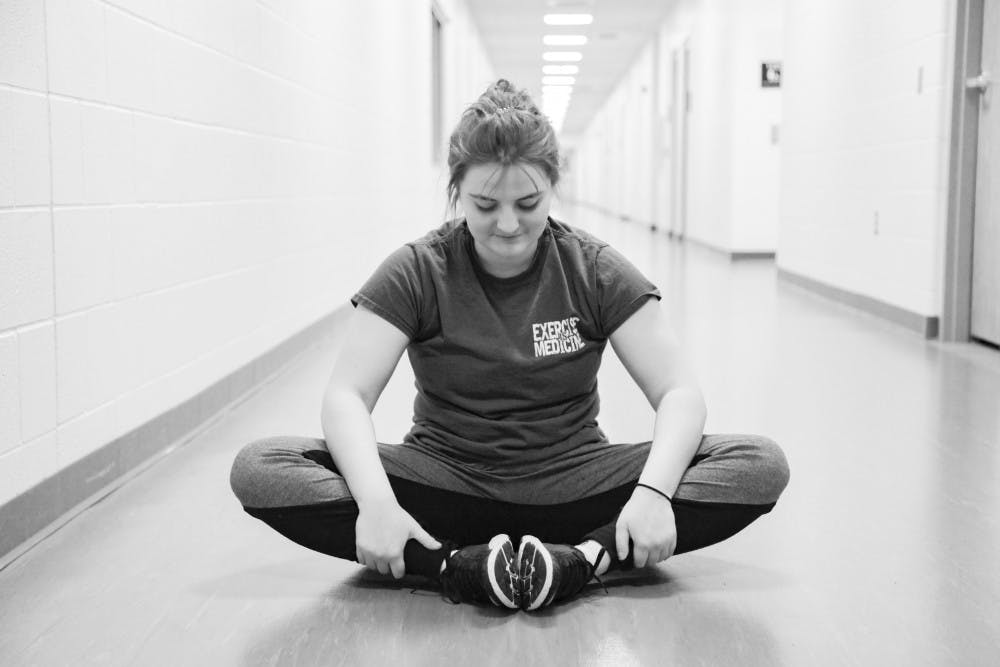By Chrysa Keenon and Gabby Carlson | Echo

Spring break is just around the corner! Your peers are probably hitting the gym harder than before, trying desperately to get in shape prior to their trip to the beach. But did you know that you could be exercising wrong without knowing it? This week, The Echo talked with KSAC trainers to get some tips and tricks on how to make a workout the best it can be for both your body and your mind.
Warm Up:
Did you know you could be stretching incorrectly? According to trainer and senior Gabby Trudeau, staying in one position to hold a stretch is not recommended for a pre-workout ritual. Dynamic stretching, which consists of moving the body quickly, prepares muscles for a workout.
"You are less prone to injury if you do dynamic stretching," Trudeau said. "You should work up to a light sweat during a warm up, then stretch whatever feels sore, but stay moving."
Ideally, a warm-up should take 5 to 10 minutes. Jumping jacks, jogging laps or line hopping are just some of the many options to get your heart pumping.
Trudeau said that focusing on warming up the area of the body that you plan on using during the workout is more beneficial than warming up your whole body.
Workout:

You told yourself you would get that "spring break bod" this year. You planned to go to the gym more often. You were going to run that six-minute mile. You were even going to give up chocolate for lent and start eating fruit. But then "Friends," a jar of Nutella and your couch looked a lot more appealing.
You're setting your goals wrong, according to KSAC trainer and senior Sarah LeGrand.
"Don't just go to the gym 'more often,'" LeGrand said. "Plan on days you will actually go. The more details you have with a goal, the more accountable you feel. Make (goals) attainable; if you set (unrealistically) high standards for yourself, you are setting yourself up for failure."
When people work out, LeGrand encourages them to set small, achievable milestones for themselves. To reach long-term goals, a person must make small steps toward them.
Overworking yourself can be dangerous as well. New Year's Day may be when the gym looks full of hopeful new faces, but the gym is most crowded; in March. People try fitting six-month workout plans into three weeks.
"If you are feeling exhausted after every workout, you should cut back a little because you want to feel energized and good after," LeGrand said. "If you have a lot of muscle soreness, don't go hard the next day; slow down."
LeGrand gives four tips to help you move toward your goal efficiently.
- Be accountable with other people, so they can remind you of your goals and motivate you toward them.
- Write down your goals, preferably in a place you can see them. This way, you are constantly reminded of what you are striving for.
- Get a fitness app. At the very least, walk 10,000 steps a day.
- Make working out a lifestyle, not a ploy to look good in a swimsuit. Though this can be used as motivation to keep going, LeGrand promotes a lifetime of working out and being healthy.
Cool down:
Static stretching, or holding a stretch pose, is great for a post-workout cool down. According to trainer and senior Jared Adkins, static stretching lengthens muscles, increases flexibility and reduces the risk of orthopedic injuries.
"I always have my clients pick three or four stretches to perform after each workout we do. We spend about five minutes stretching, holding each stretch about 30 seconds," Adkins said.
Trudeau recommended drinking water. "You are probably dehydrated, and it's important to restore your body to equilibrium and balance," Trudeau said.
DOMS:

No, not the "Fifty Shades of Grey" kind of doms. Delayed onset muscle soreness (DOMS) is the reason you feel sore after a particularly exhausting workout.
"When you work out, your body breaks down muscle and boosts metabolism. The soreness is your body's reaction to rebuilding and reconstructing muscle and acid buildup," Trudeau said.
Every body is different and has a unique metabolism. It could take three days to feel sore after a hard workout, or it could take three hours. According Trudeau, you don't have to feel sore after a workout to know that you worked your muscles hard. Everyone is different, and bodies adapt on different levels.





